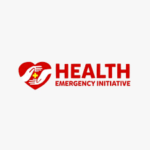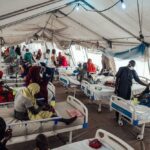Nigerian firm to produce HIV/malaria test kits.

Abuja, Nigeria – In a groundbreaking development for Nigeria’s healthcare sector, a local biotechnology firm has announced plans to commence the production of HIV and malaria test kits. This initiative is expected to strengthen Nigeria’s capacity to tackle two of its deadliest diseases, reduce dependence on imported kits, and promote self-sufficiency in the nation’s health system.
The announcement comes amid Nigeria’s growing demand for affordable, accurate, and accessible diagnostic solutions. Both HIV and malaria remain pressing public health challenges, and experts say local production of test kits will be a game-changer in the fight against these diseases.
Tackling HIV and Malaria in Nigeria
According to the World Health Organization (WHO), Nigeria has one of the highest burdens of HIV globally, with an estimated 1.8 million people living with the virus. Meanwhile, malaria accounts for nearly 27% of global cases, killing an estimated 200,000 Nigerians annually, mostly children under the age of five.
Until now, Nigeria has relied heavily on imported test kits, which are not only costly but also vulnerable to supply chain disruptions. The COVID-19 pandemic exposed the fragility of global medical supply systems, forcing African countries to rethink strategies and invest in local solutions.
The new firm’s plan is expected to close testing gaps, allowing early detection, improved disease management, and ultimately saving more lives.
Benefits of Local Production of HIV and Malaria Test Kits
-
Affordability and Accessibility
Locally manufactured test kits will be cheaper than imported alternatives, reducing the financial burden on patients and healthcare providers. This means rural communities, where malaria is most prevalent, will have better access to quick diagnostic tools. -
Job Creation and Economic Growth
Beyond healthcare, the production of test kits will create new jobs, boost local industries, and reduce Nigeria’s dependency on foreign suppliers. Experts estimate that the medical diagnostic industry could inject millions into Nigeria’s economy if scaled effectively. -
Improved Public Health Outcomes
With early and accessible testing, HIV treatment can begin sooner, improving patient outcomes. Similarly, malaria can be detected and treated before severe complications arise, reducing hospital admissions and deaths. -
Research and Innovation Hub
Local production also positions Nigeria as a research hub, encouraging innovation in medical technology and diagnostics. This could attract foreign partnerships and investments.
Government and Stakeholder Support
The Nigerian government has welcomed the initiative, describing it as a milestone in strengthening the country’s healthcare sovereignty. The Federal Ministry of Health has pledged to provide regulatory support through the National Agency for Food and Drug Administration and Control (NAFDAC) to ensure the kits meet global standards.
Health experts and civil society organizations have also called on the government to provide tax incentives and infrastructure support to sustain local manufacturing. They emphasize that Nigeria must not only produce test kits but also ensure widespread distribution to clinics, hospitals, and pharmacies nationwide.
Expert Reactions
Dr. Aisha Bello, a public health specialist in Lagos, hailed the development, saying:
“Nigeria producing its own HIV and malaria test kits is long overdue. We need to prioritize local manufacturing if we truly want to fight these diseases effectively. Cheaper, accessible test kits will encourage more people to get tested early.”
Similarly, Prof. James Okeke, an infectious disease researcher, noted that local production could reduce the stigma associated with HIV testing by making kits available for self-testing in private settings.
Challenges Ahead
While the announcement has generated excitement, experts caution that Nigeria must overcome key challenges to make the initiative sustainable. These include:
-
Ensuring quality assurance and adherence to global standards.
-
Building robust distribution networks to reach rural and underserved areas.
-
Securing long-term funding and partnerships to scale production.
-
Combating counterfeit medical products, which remain a challenge in Nigeria’s pharmaceutical sector.
What This Means for Nigeria’s Healthcare Future
If successfully implemented, the local production of HIV and malaria test kits could mark a turning point in Nigeria’s fight against infectious diseases. By combining innovation, affordability, and accessibility, Nigeria has the opportunity to save millions of lives, strengthen its healthcare sector, and serve as a model for other African countries.
This initiative aligns with Sustainable Development Goal 3 (Good Health and Well-Being), reinforcing Nigeria’s commitment to ending the HIV/AIDS epidemic by 2030 and achieving a malaria-free future.



